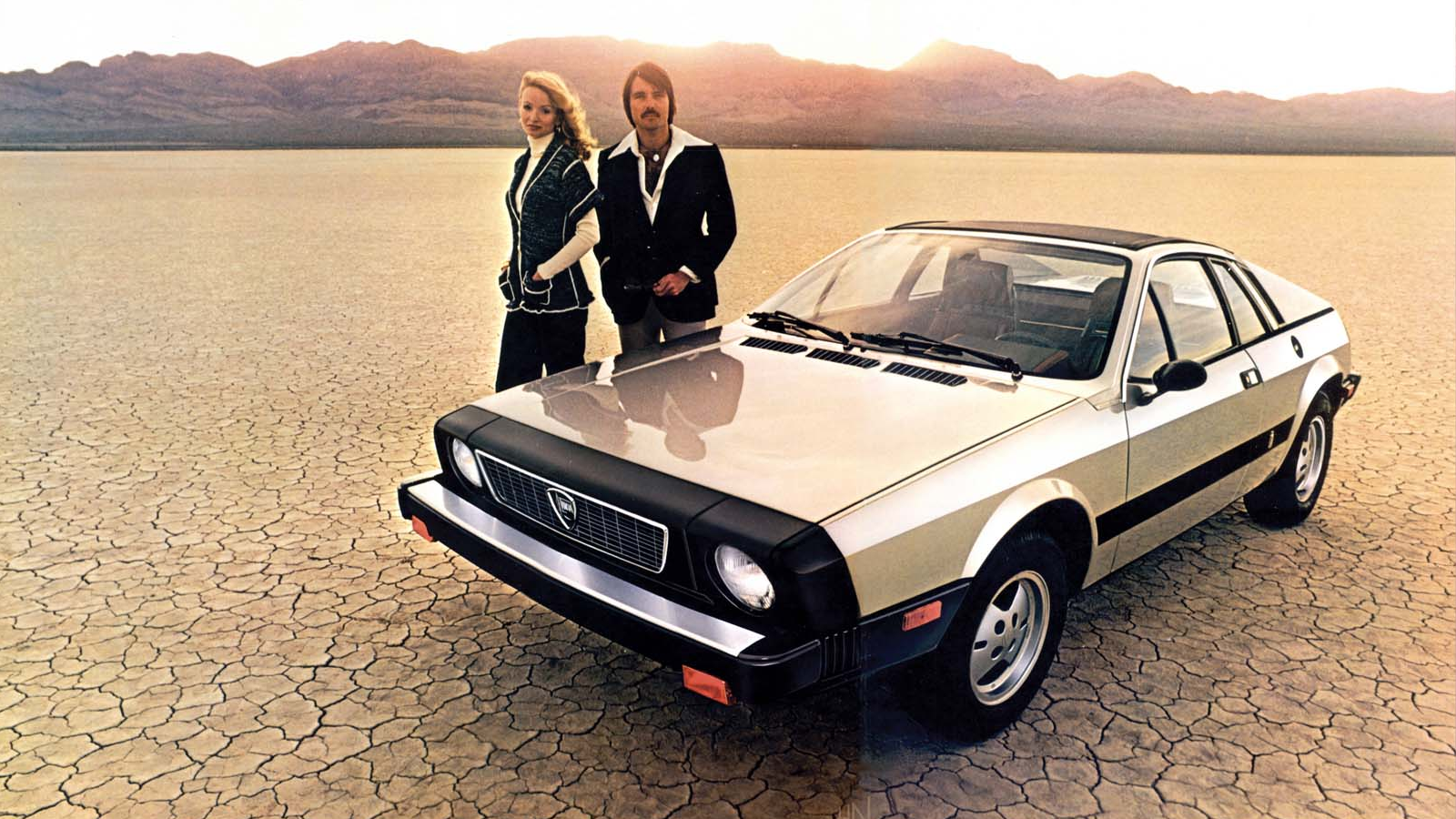These May Be The Most Superfluous-Seeming Pop-Up Headlights In All Motoring History
I think most red-blooded people enjoy pop-up headlights on some level. Even if you're not crazy about the oddly eye-less look of many cars with them, you have to appreciate that little extra bit of kinetic fun that comes when your lights don't just switch on, but actually leap up or flip around or reveal themselves in some sort of way. It's just fun. There is one car, though, where the position change of the headlight is so strange and subtle that you wonder why they even bothered at all. That car is the Lancia Scorpion.
The Lancia Scorpion has pop-up lights in the same category as the pop-up lights of the Porsche 928: the lights are always visible, but their position changes. In the case of the Porsche, that change in position is nice and dramatic:
The Scorpion is a different story. I was reminded of it because one of the brochures I got in my massive haul of old car brochures was a Lancia one, which had this spread dedicated to the Scorpion:
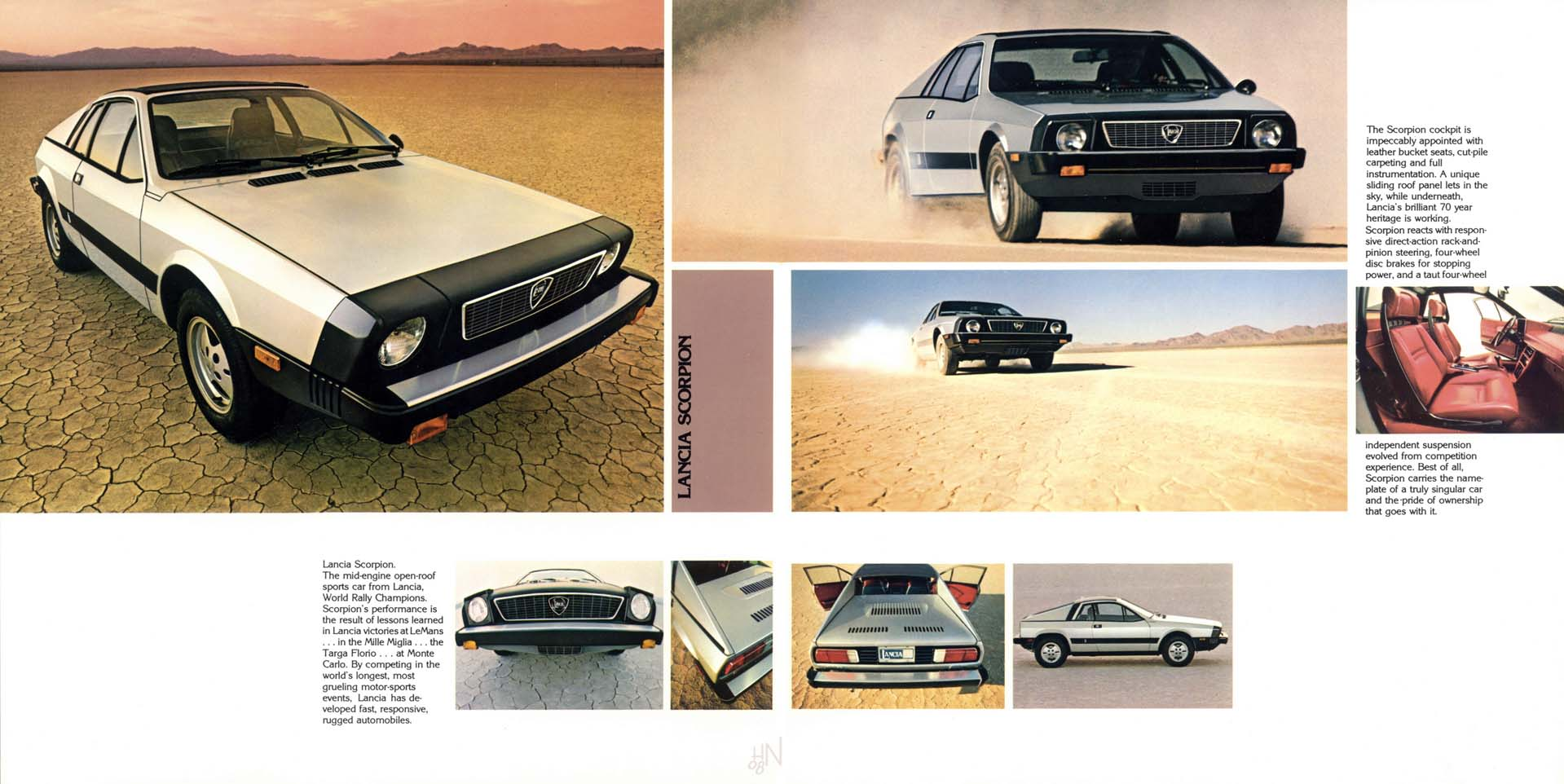
I think I forgot the Scorpion even had moving headlights until I saw this. And it's so subtle, I think I should zoom in for you:
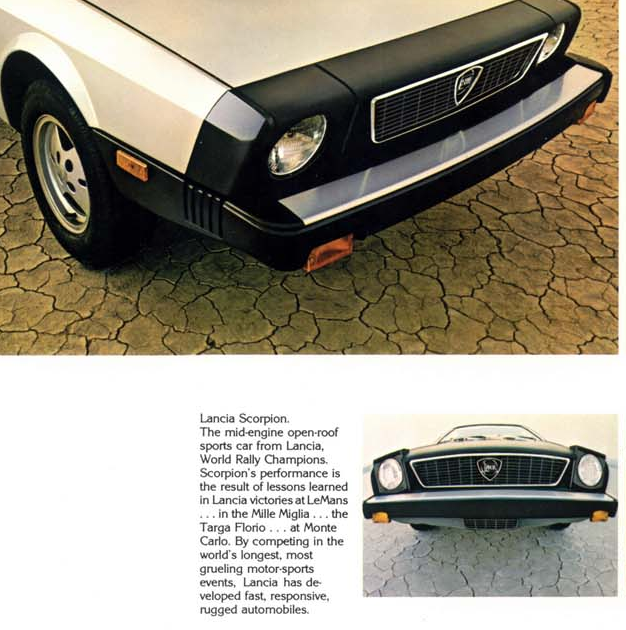
See the difference there? Here, lets's compare at more similar angles:
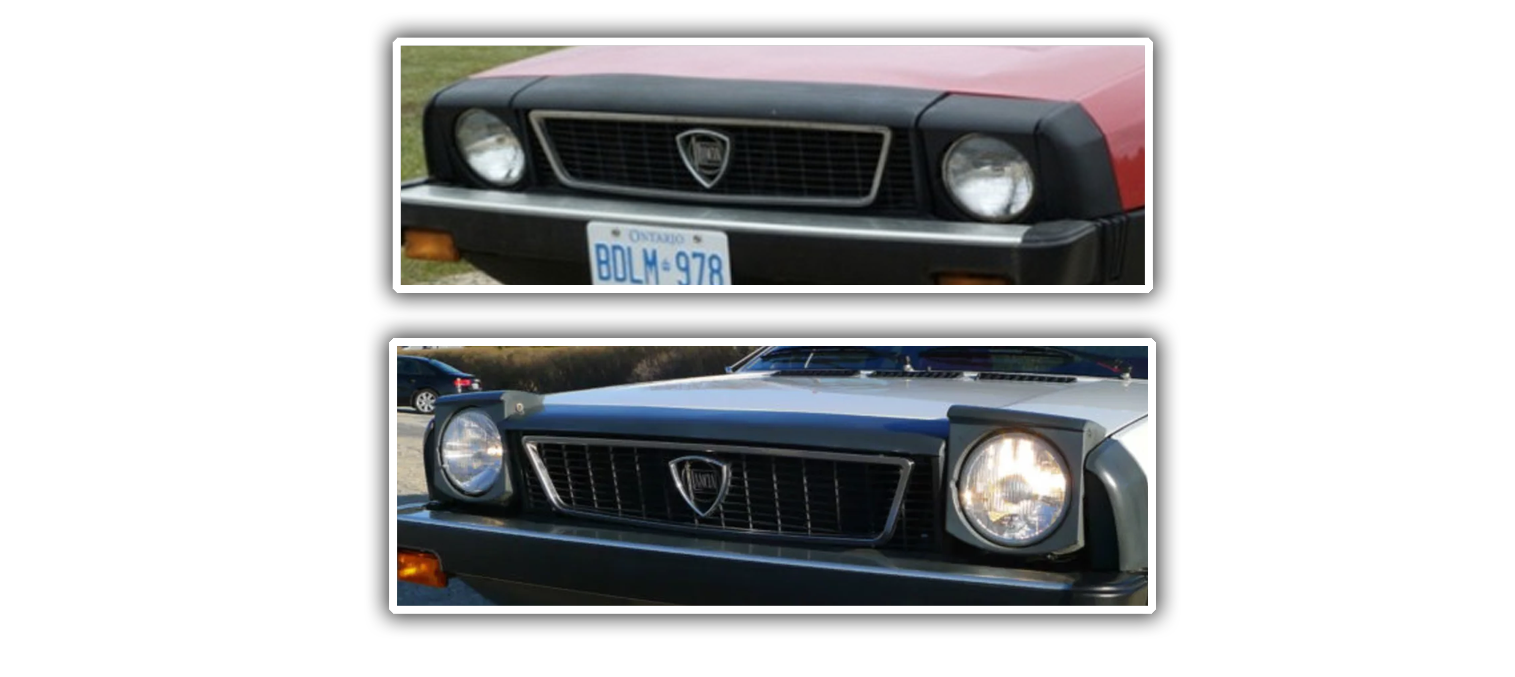
See what's going on, there? The headlights are just kind of canting upwards at an angle of about, oh, maybe 15 degrees or so? Not a whole lot. It really seems like they could have just recessed those headlights a bit and had them at the proper angle without going through all the expense and hassle of installing electric motors, the associated switches and wiring, the mechanical mechanism, the body panel cutouts, all that.
It just seems like a hell of a lot of effort for not a lot of payoff, right?
So why did they do it?
There's a clue as to why when you look at the Scorpion's European brother, the Lancia Montecarlo:
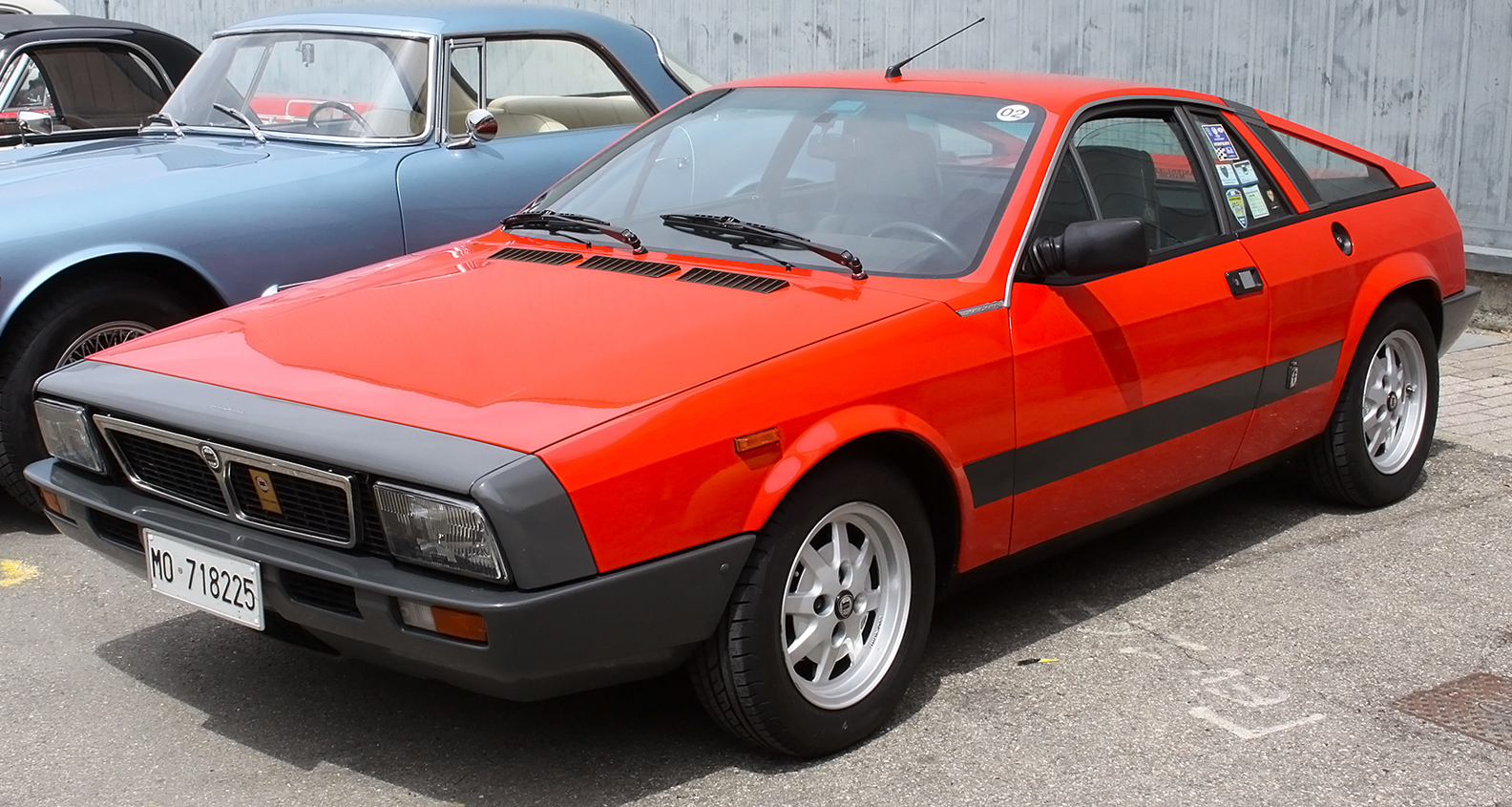
The Scorpion was an American-market only version; the rest of the world got the Montecarlo (or the Beta) and they didn't bother with any sort of pop-up headlamps, preferring instead to just use those Euro-spec big rectangular units.
America, though, had a bunch of rules about minimum headlight height, and it looks like this oddly complicated method was how Lancia chose to meet the requirement: if the headlight was a bit too low, they'd just use electric motors to rotate them up to the proper height as needed.
It's sort of a costly and strange solution to the problem, though it beats how MG did it for the MGB, where they just raised the whole damn car's ride height by over an inch, or the original Fiat 500, where they stuck on hilarious-looking higher-mounted headlights, giving the car the look of someone who's being perpetually goosed:
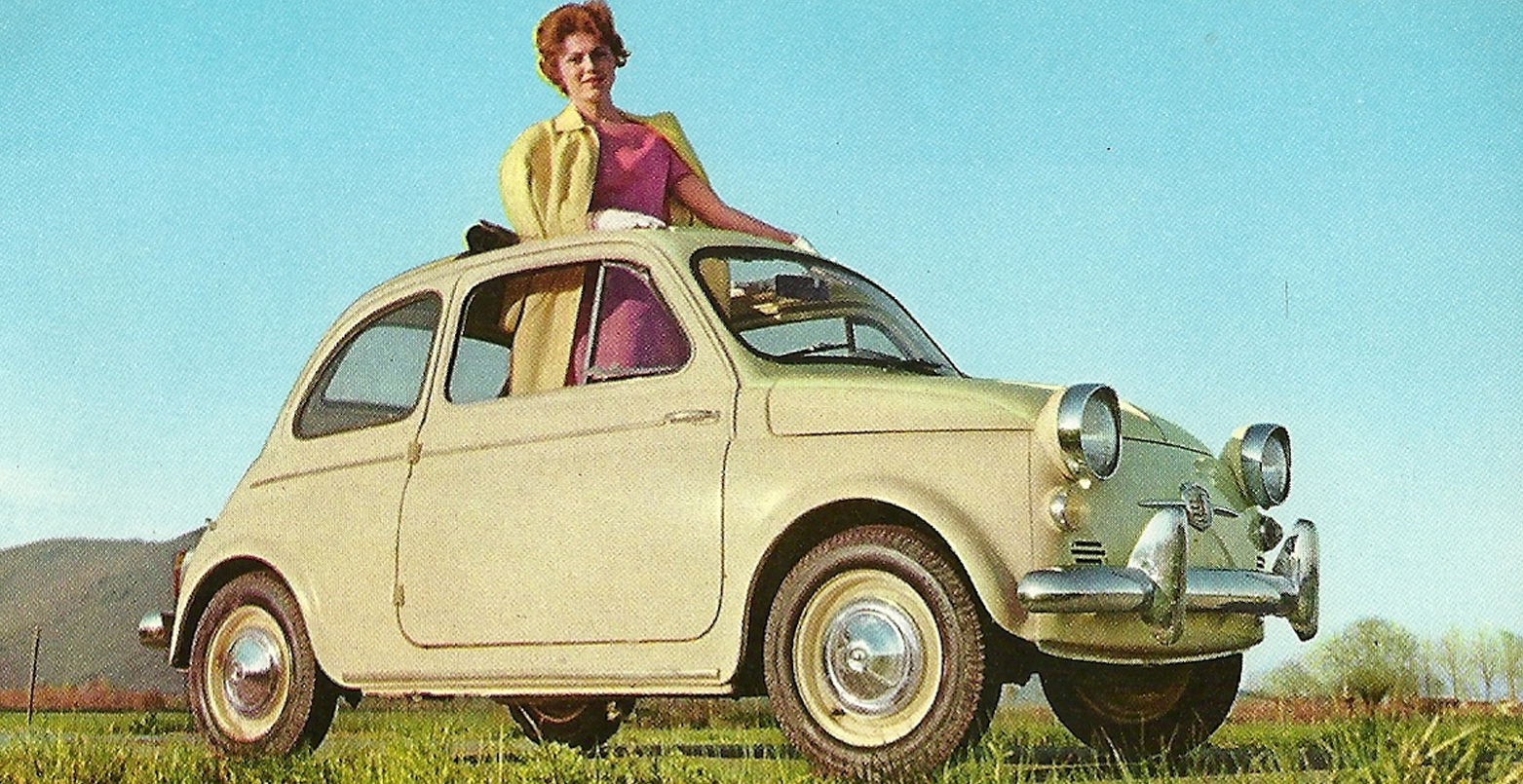
So, with these alternatives in mind, you have to hand it to Lancia for taking the time to make a more elegant-looking, if more complex, solution to this problem.
They may be the only headlights that don't so much have an on/off or up/down position as they do a legal/not legal position?
Regardless, I like they way they look. There's not many cars where you can change their facial expressions from "daydreaming and distracted" to "you now have my attention" at the flick of a switch, after all.
